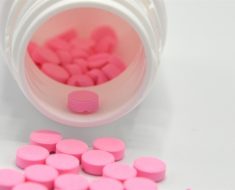Coupling free diagnostic tests for malaria with discounts on artemisinin combination therapy (ACT) when malaria is diagnosed can improve the rational use of ACTs and boost testing rates, according to a cluster-randomized trial published this week in PLOS Medicine by Wendy Prudhomme O’Meara of Duke University, and colleagues.
More than half of all ACTs consumed globally are dispensed over the counter in the retail sector, where diagnostic testing is uncommon, leading to overconsumption and misuse of antimalarial drugs. In the new study, the researchers randomly assigned 32 communities in Western Kenya, with a combined population of 160,000, to control or intervention arms. Intervention arms had community health workers offering free malaria tests for any individual experiencing malaria-like symptoms. Those who tested positive for malaria received a discount voucher for ACT. In control areas, community health workers continued to provide health promotion and referral services according to government guidelines.
Among all areas, between July 2015 and May 2017, 32,404 people were tested for malaria and 10,870 vouchers were issued for discounted ACTs. A total of 7,416 randomly selected participants with recent fever were surveyed. After 12 months, 50.5% of people surveyed in intervention areas, with recent fever, had taken a malaria diagnostic test, while only 43.4% of those with recent fever in control areas had taken a test (adjusted risk ratio 1.20; 95% confidence interval 1.05-1.38, p=0.015). Moreover, the rational use of ACTs— the proportion of ACT used by those testing positive for malaria—increased from 41.7% at baseline to 59.6% at 18 months in intervention areas, and the proportion of ACT dispensed to true malaria cases in the intervention arm was 40% higher than in the control arm (adjusted risk ratio 1.40; 95% CI 1.19-1.64, p<0.001).
Source: Read Full Article





